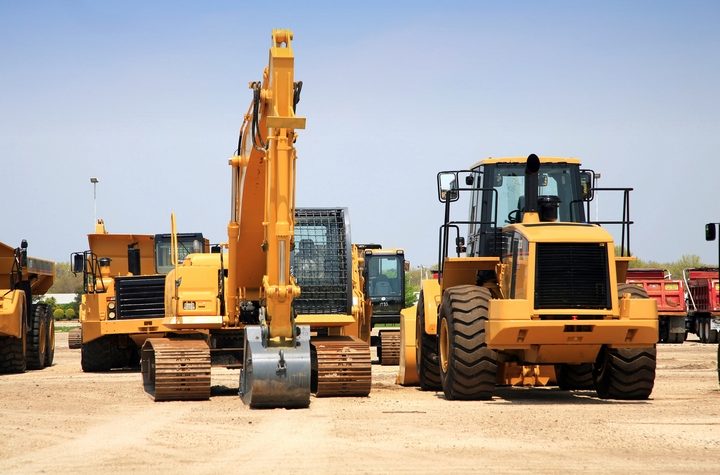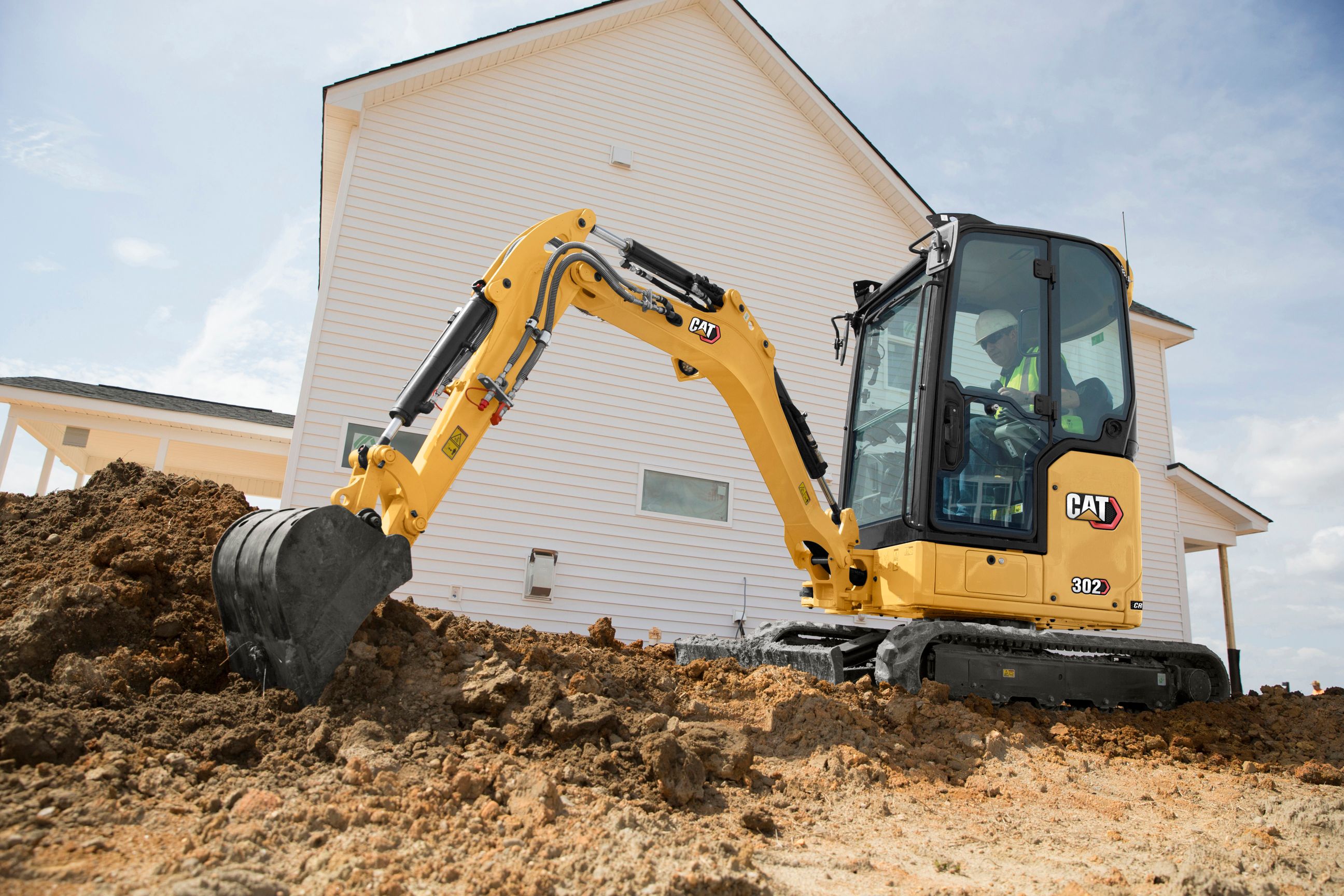Locate the Most Trusted Rental Company Near Me for Heavy Equipment Rentals
Locate the Most Trusted Rental Company Near Me for Heavy Equipment Rentals
Blog Article
Elements to Evaluate When Renting Building Devices for Cost-Effective Procedures
When thinking about the rental of building and construction tools for cost-efficient procedures, various aspects come into play that can dramatically affect the general project expense. Reviewing equipment specifications, rental terms, maintenance prices, task duration, and performing a detailed expense analysis are vital steps in guaranteeing ideal monetary effectiveness and operational success. Each of these elements holds the possible to either simplify operations and decrease expenses or result in unforeseen prices and task delays. By meticulously examining these aspects, building and construction companies can make informed decisions that not only benefit their lower line yet additionally add to the overall efficiency of their tasks.
Tools Specifications

Factors such as gas usage, operating speed, and technology assimilation contribute to equipment efficiency. By focusing on functionality, resilience, and performance in equipment requirements, building and construction job managers can enhance functional efficiency and inevitably achieve successful task results.
Rental Terms
To make sure a clear understanding of the terms associated with renting building and construction devices, it is vital for task supervisors to thoroughly assess and discuss the rental agreement (construction equipment rentals). Rental terms incorporate numerous facets that can considerably affect the total cost and performance of a building and construction job. Trick factors to consider consist of the rental duration, rates structure, settlement terms, maintenance responsibilities, insurance policy protection, and provisions for tools failures or breakdowns
When examining the rental agreement, task supervisors ought to pay very close attention to the period of the rental duration. Comprehending whether the rental charges are based on a hourly, day-to-day, regular, or month-to-month rate is vital for budgeting and organizing purposes. Additionally, clearing up the payment terms, such as ahead of time prices, down payment, and fines for late settlements, can aid avoid unexpected financial concerns.
Moreover, discussing maintenance duties in advance can prevent conflicts in the future. Plainly outlining who is accountable for regular upkeep, repair services, and maintenance can make certain that the equipment continues to be in optimum condition throughout the rental duration - construction equipment rentals. It is also necessary to confirm the insurance policy protection given by the rental company to avoid any kind of liabilities in case of problems or mishaps. By carefully examining and negotiating the rental terms, job managers can protect cost-efficient devices rentals that satisfy their project demands.
Maintenance Costs

When assessing upkeep prices, think about aspects such as regular servicing, substitute of components, and emergency fixings. Some rental firms offer maintenance packages that cover these prices, while others may need tenants to bear the full upkeep costs. Calculating the complete expense of ownership, including upkeep, supplies a much more precise image of the service's monetary influence. By budgeting for upkeep costs ahead of time and sticking to suggested servicing routines, tenants can alleviate unexpected costs and maximize the effectiveness of the leased building tools.
Project Period
Efficient job duration administration is integral to maximizing the application of rented out building equipment and making sure timely completion of jobs. When leasing building and construction tools, taking into consideration the task period is crucial for affordable procedures. A clear understanding of the task timeline permits better planning and use of tools, guaranteeing that the right tools are available for the required duration without sustaining unneeded expenses. Matching the rental period to the task's estimated duration assists in preventing any type of prospective late charges or service charges that might arise from going beyond the agreed-upon rental timeframe. Reliable project period management makes it possible for construction teams to simplify their operations, boost performance, and satisfy task due dates successfully. By straightening the rental duration with the project timetable, construction firms can make best use of the usage of devices, minimize downtime, and eventually achieve cost savings on their projects. As a result, examining and accurately estimating the job period is an essential aspect in renting out building and construction equipment for optimum cost-effectiveness.
Cost Analysis
Aligning the task duration with an extensive price evaluation is vital in enhancing the financial performance of renting building and construction equipment. Conducting a complete price analysis entails more than just comparing rental prices.
One essential facet of cost evaluation is recognizing your job's particular equipment demands. Renting tools that is either underutilized or overused can cause unnecessary expenses. Analyzing the task requirements and choosing the right kind and amount of devices can help decrease costs while ensuring functional efficiency.
Additionally, contrasting the expenses of renting versus buying devices is important. While renting out might seem affordable for short-term tasks or specific equipment, acquiring might be extra economical for lasting or often made use of machinery. By evaluating the advantages and disadvantages of both choices, you can make tactical choices that straighten with your budget and task objectives.
Final Thought
To conclude, examining aspects such as equipment specs, rental terms, maintenance costs, task period, and price analysis is vital when renting construction devices for cost-efficient operations. By carefully considering these elements, building firms can ensure they are getting construction equipment rentals the many value out of their devices rentals and eventually save cash on their projects. It is essential to focus on cost-effectiveness and effectiveness in all elements of building procedures.
Evaluating equipment specs, rental terms, upkeep prices, task duration, and carrying out a comprehensive price evaluation are essential steps in guaranteeing ideal financial performance and functional success. By prioritizing capability, toughness, and effectiveness in equipment requirements, building and construction job managers can boost functional performance and eventually achieve successful job end results.

By lining up the rental period with the project routine, construction business can take full advantage of the usage of equipment, lessen downtime, and eventually achieve price financial savings on their projects.In final thought, assessing elements such as tools specs, rental terms, upkeep costs, job period, and cost analysis is critical when renting building and construction equipment for cost-effective operations.
Report this page